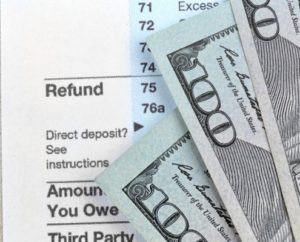
The quick answer is that you can almost always protect your tax refund. There are several different scenarios at play, so first, it is best to understand your rights outside of bankruptcy, and then I will address what happens to your tax refund when you file bankruptcy:
Outside of bankruptcy, the only creditors which can touch your federal tax refund are back child support, or other governmental obligations, including student loans. For Minnesota refund, the same thing is true and settles also have the right to intercept your state tax refund. Private creditors cannot otherwise seize your tax refund directly from the government, but once they have been deposited into your bank account, then a judgment creditor could levy on your bank account, and/or if it is deposited into a bank account where you all money to the bank, that they could do what is called a set off and refused to permit you to withdraw the money. (Lesson number one, don’t deposit your tax refund into a bank where you owe money if you are not paying them, that is like putting your hand in alligator’s jaws. Lesson two, if there are judgments against you, you should keep your money out of the bank as well).
Once you file bankruptcy, any tax refunds that are due and owing to you are part of what is called your bankruptcy estate, and part of our job is to ensure that you can protect most if not all of your tax refund. If for instance your bankruptcy is filed under March 31, 2012, and you have not yet filed your 2011 taxes, then your 2011 tax refund, as well as 25% of your 2012 taxes (since we would be three months into the year) are the property of your bankruptcy estate. As long as we are able to protect your assets under the federal exemption, which is $12,000 per person, this is usually not an issue. If you have already received the tax refund and it is cash on hand and your miscellaneous assets are otherwise within the $12,000, that’s not an issue either.

